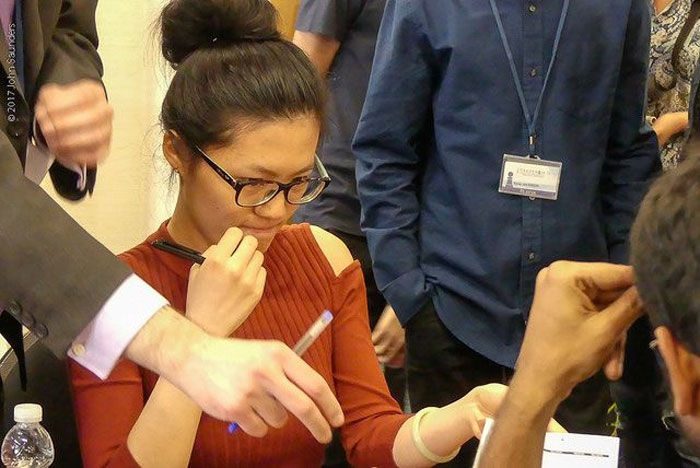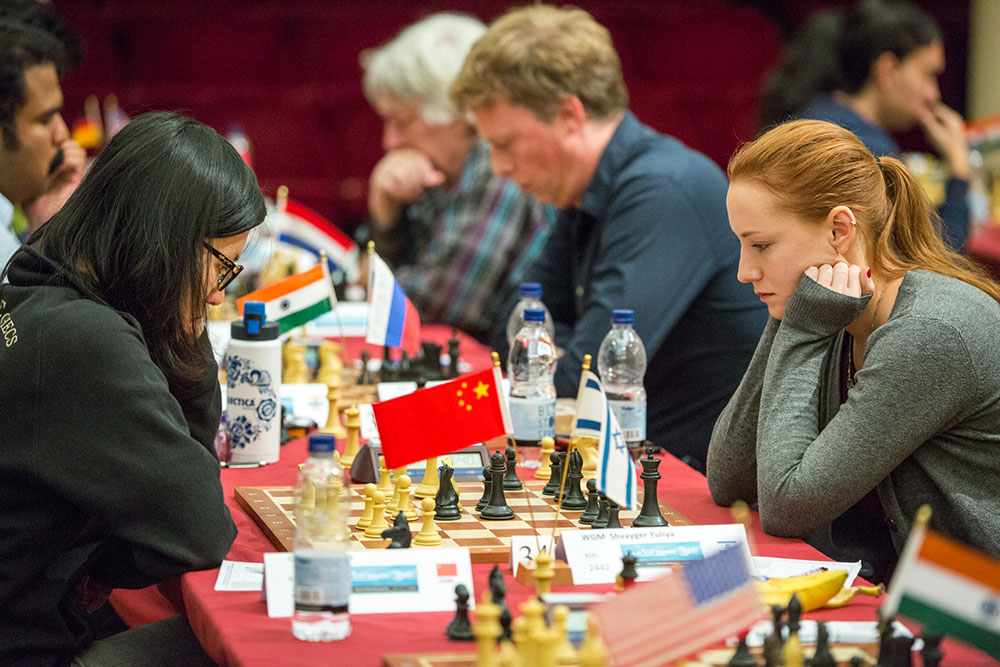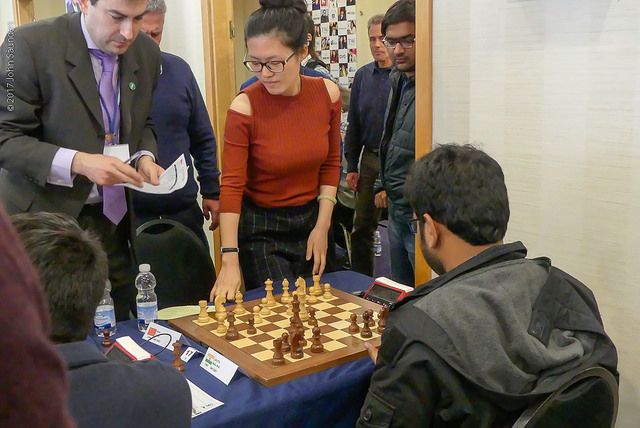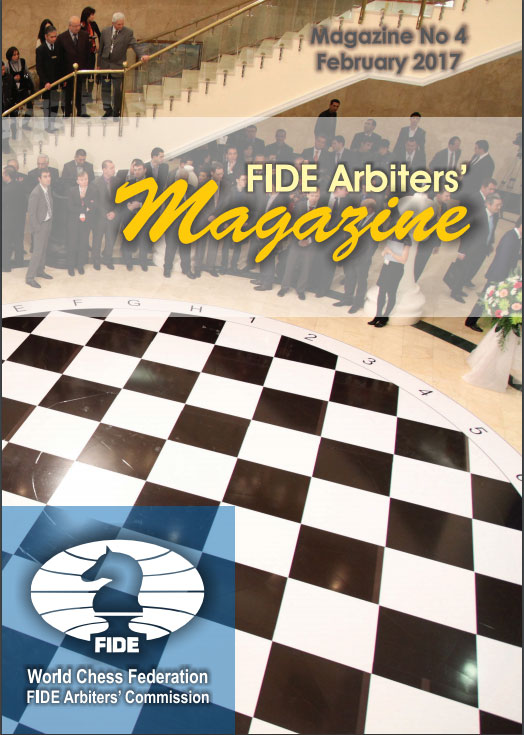


Hou Yifan had to be asking herself this question. After all, while both tournaments certainly include women, Yifan herself among them obviously, less than 15% of the participants in the Masters section are female. Hou has been the overwhelming queen of the game since Judit Polgar’s retirement from competition, and remains the strongest female chess player since her great predecessor. After dominating the women’s competitions, the Chinese prodigy finally announced her withdrawal from them, and would dedicate herself to realizing her potential, seeking to hone her skills against the best players she could face. There is no getting around her huge edge over her colleagues, and it becomes impossible to really progress when you lack proper competition.
Opens such as the Tradewise Gibraltar Masters and the Chess.com Isle of Man Open offer a rare opportunity to face players of all strengths, including the crème de la crème with giants such as Magnus Carlsen, Fabiano Caruana, Wesley So, Vladimir Kramnik, Hikaru Nakamura, and so many more. Hou knows that she may easily face her female colleagues there — not that there is anything wrong with playing them — but she is there to seek new battles and challenges. And women are a strict minority, so the chances are remote, aren’t they?

Hou Yifan vs. Yuliya Shvayger in round four | Photo: Chess.com / Maria Emelianova
In this frame of mind, the ninth round of the Gibraltar Masters seemed almost a bad joke, as she found herself paired against her seventh female player, Nino Batsiashvili. What are the odds? The odds, even from an intuitive perspective, are remote indeed. So much so that she could not believe they were a genuine coincidence. In protest, she resigned her next and last round game in Gibraltar after five moves.

After five moves, Hou's resignation to a shocked GM Lalith Babu | Photo: John Saunders
The news was echoed around the world, not just in chess circles and media, but mainstream media such as ESPN and Der Spiegel to name a few. Now, roughly eight months later, she has started the next largest Swiss of the year and after four rounds has found herself paired against four female players! What are the odds? Grandmaster John Nunn, a PhD in mathematics, told us precisely calculating it would be an exercise in futility.
"Estimating a probability for this would involve so many assumptions that the resulting figure would be fairly meaningless."
Although it would certainly be interesting to know, the real question that needs answering is whether or not the pairings are indeed honest and the result of a probabilistic fluke (i.e. a massive coincidence), or has there been some slight tweaking behind the scenes, so subtle that it would be hard to prove without an exhaustive autopsy. Readers may be interested to know that just such an investigation was conducted for Gibraltar.

The first came about not long after the end of Gibraltar, and was conducted by none other than FIDE. In the fouth issue of the FIDE Arbiter’s Magazine (pictured), a new publication issued by the FIDE Arbiter’s Commission, three cases were studied and reported upon by the arbiters, the first of which was the Gibraltar pairings.
Each and every round’s pairings were analyzed in detail to see if even one single case was possibly the result of manipulation. Each case was verified, not by checking a computer, but checking with the system and pairings by hand, a long and laborious process. Each time the female opponent she faced was incontrovertibly correct.
Here is a sample of the analysis on a key encounter in the 8th round against Ju Wenjun:
8th round
After winning her seventh game, Hou Yifan has now 5 points, like other 19 players. There is a MDP (#27). All in all, in the bracket with 5 points, there are 21 players - 10 WS and 11 BS. Let’s look at the full table:

There is a new row in S2, signaling that #67 has already floated down in any of the last two rounds. Thus, accordingly to the FIDE Dutch rules, it means that he is protected from floating down again. The floater will come from the BS – but, as #67 is protected, the obvious candidate to float down is #45.
The MDP (#27) is a BS who, since in the bracket there is parity, should meet the first WS (i.e. #11). If we then exclude the candidate to float down (#45), we remain with 16 players, 8 WS and 8BS. Hence, we can use the usual trick (#22 is WS, so we are interested only in pairs S1-WS vs. S2-BS).

These pairings yield no problems. The opponent of Hou Yifan (#22) is #38, i.e. Ju Wenjun.
Readers can find the entire issue and others, in PDF, at the FIDE Arbiter's website. It was an impressive article, done methodically, so as to remove any doubt on the conclusions at the end.
It should be pointed out that had the claims been so ludicrous as to be without merit, the authors would not have gone to such extensive trouble in their investigation. Nevertheless, roughly eight months later, we have the same situation in extremis: four rounds, four women. Can lightning really strike the same person twice? In so short a period no less? Needless to say, we — and many others — are completely sympathetic; on social media and news sites, the striking coincidence seemed to stretch the boundaries of credibility to the limit.
Hou Yifan plays Nino Batsiashvili in round 3 of the Isle of Woman Masters... sorry... correction... Isle of Man Masters #IoMChess pic.twitter.com/k3vdikh2z1
— John Saunders (@johnchess) September 25, 2017
The first thing we did was to consult the arbiters on-site, directly. It wasn't a matter of suggesting foul play, but to know whether it might not be some software issues, that took into account the presence of female players or any other specific group, biasing the pairings in some remote way.
Chief Arbiter IA Peter Purland answered promptly, showing in his reply just how seriously they took the matter of pairings in general:
I can confirm we are using Swiss Manager version 12.0.0.171 (21 June 2017) and Swiss Master version 5.6 (build 12). These programmes do not use the same pairing programme.
Our procedures are that I input results and make pairings with Swiss Manager, Deputy Chief Arbiter IA Arno Eliens does this in Swiss Master independently. Then we compare full pairings of both programmes and only if these are exactly the same do we publish the pairings.Kind regards,
Isle of Man International Chess Tournament
Chief Arbiter IA Peter Purland
Was it possible that some form of manual intervention had been done at some level? What about genders? It is, after all, a data field used in such pairings programs, perhaps that had been used in the computer's algorithms? Once again, our questions were answered clearly and promptly (emphasis added):
Gender is a field in players' data — as it is in FIDE data. However, it is not used in the pairing algorithm for computer pairings. We do not use the manual pairings option (except for the first round to insert the random pairings made).
For further specifics of the software used, we would like to refer you to the programmers.
Indeed, in the interest of due diligence, we did consult the programmers, asking them to look at the pairings, and tell us with certaintly whether they were the result of pure, unfettered software pairings, with no outside input. Heinz Herzog is the author of Swiss Manager, the most widely used, and progenitor of Chess-Results.
I checked the first 6 rounds of the Masters Open. I can confirm, that the pairings was done without manual intervention.
Best regards,
Heinz Herzog - Swiss Manager
These findings have been passed on to Yifan, who was forced to wonder what bizarre twist of fate had made her victim to such an incredible series of coincidences. Nevertheless, she was reassured, as were we all, that everything was in order. Having received a half point in her 5th round bye, Hou Yifan is paired in round six against GM Panchanathan Magesh Chandran...a man!